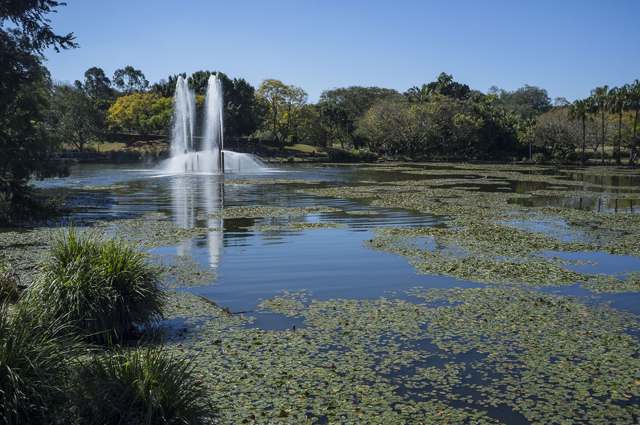 The University of Queensland’s lake, St Lucia campus, is home not just to ducks, eels and turtles, but also a tiny, and potentially useful microbe, a new study reveals.
The University of Queensland’s lake, St Lucia campus, is home not just to ducks, eels and turtles, but also a tiny, and potentially useful microbe, a new study reveals.
Emeritus Professor John Fuerst of the School of Chemistry and Molecular Biosciences said microbiologists from Uppsala University, Sweden, and UQ had described a bacterium isolated from the University Lake.
“The researchers have chosen a name for the microbe, Tuwongella immobilis, based on the Indigenous name Tu-wong used traditionally for the region of the Brisbane River including St Lucia where UQ and a nearby suburb, Toowong, are located,” he said.
“The group of bacteria the new Tuwongella genus belongs to is called planctomycetes, an evolutionarily-distinct bacterial group with unusual cell structures.
“Planctomycetes are important in global carbon and nitrogen cycles, and in some cases with traits extremely useful for wastewater treatment.”
Professor Fuerst said UQ microbiologist Dr Margaret Butler, of the Australian Centre for Ecogenomics, isolated the bacterium while still a PhD student in his laboratory.
Another former student, Dr Benjamin Yee, now a post-doctoral fellow at Uppsala University in the laboratory of Professor of Molecular Evolution Siv Andersson, has been a central part of the team sequencing the bacterium’s genome and analysing its relationships to other bacteria.
The microbe’s cells have complex internal membranes similar to those described in a close relative Gemmata obscuriglobus also isolated from a Queensland lake, Maroon Dam, and investigated intensively by Professor Fuerst’s laboratory in past research.
Professor Fuerst said the genus name Tuwongella was chosen with the expert, and culturally sensitive advice of UQ’s Director of the Aboriginal Environments Centre, Professor Paul Memmott, and Centre collaborators Ray Kerkhove and Alex Bond.
The Head of the School of Chemistry and Molecular Biosciences, Professor Paul Young, said UQ microbiology was highly regarded internationally, with UQ microbiology achieving a global ranking of 27th in the US News Best Global Universities ranking for 2018.
He said the international collaborative nature and linked personnel of the research on Tuwongella involving Uppsala University was a good example of UQ’s global connectivity in microbiology.
“Planctomycetes include bacteria such as the anammox planctomycetes, significant for environmental remediation and sustainability due to their ability to oxidise ammonia without the need for oxygen,” he said.
“They are also important in understanding the global nitrogen cycle as a major source of atmospheric nitrogen.”
The` bacterium has been described and named in a paper recently published in the International Journal of Systematic and Evolutionary Microbiology (doi: 10.1099/ijsem.0.002271).



